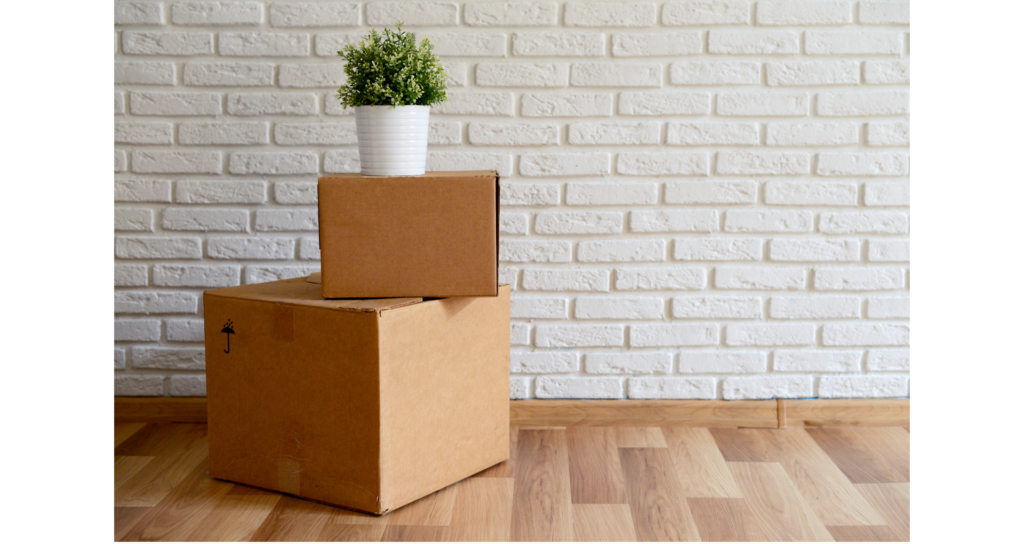Preparing for a Long-Distance Move: What You Need to Know
Relocating across state lines or the country is an exciting opportunity for a fresh start. However, the challenges that accompany long-distance moving can make the process feel daunting. Careful planning and informed decision-making are essential to ensure a smooth and successful relocation. From crafting a detailed moving checklist to implementing eco-friendly practices, preparation is key to minimizing stress. This guide delves into long-distance moving strategies, expert tips, and the role of a reliable moving company with Ace Interstate Moving top-rated moving companies list in making your relocation seamless.
Key Considerations for Long-Distance Moving
1. Start Planning Early

Effective planning is the backbone of a stress-free move. A long-distance relocation involves numerous steps, including hiring movers, organizing belongings, and arranging transportation. Starting at least two to three months ahead gives you ample time to handle every detail.
Why Early Planning Matters:
- Reduced Stress: Tackling tasks in advance helps you avoid last-minute pressure.
- Cost Savings: Booking services early often secures better rates and avoids peak-season price surges.
- Flexibility: An extended timeline allows for adjustments if unforeseen issues arise, such as delayed packing or availability changes.
How to Stay Organized:
Use digital tools like moving apps or spreadsheets to create task lists and set deadlines. Alternatively, a physical planner can help you visualize and track progress.
Create a Comprehensive Moving Checklist
A well-structured checklist serves as your roadmap, keeping every task manageable. It ensures that essential steps aren’t overlooked and helps prioritize efforts.
Essential Checklist Items:
Before the Move:
- Hire a Moving Company: Research and book a reputable moving company with experience in long-distance relocations.
- Notify Utility Providers: Schedule service disconnections or transfers for electricity, water, and internet.
- Update Address: Inform the post office, banks, insurance companies, and subscription services about your new address.
- Gather Essential Documents: Organize medical records, school transcripts, contracts, and identification in one folder for easy access.
- Declutter: Sort through your belongings and donate, sell, or recycle items you no longer need.
During the Move:
- Oversee Packing: Whether you pack yourself or hire professionals, ensure fragile items are securely wrapped.
- Prepare an Essentials Bag: Include items like medications, toiletries, a change of clothes, and chargers.
- Maintain Communication: Stay in touch with your moving company for updates about timelines and logistics.
After the Move:
- Confirm Delivery Dates: Coordinate with the moving company to ensure timely delivery of your belongings.
- Unpack Strategically: Start with essentials, such as the kitchen and bedrooms, to settle in quickly.
- Acclimate to Your New Area: Explore local amenities, connect with neighbors, and locate nearby services.
Decluttering and Downsizing
Long-distance moves are an excellent opportunity to reevaluate your belongings and lighten your load. Decluttering not only makes packing easier but also reduces moving costs, as charges are often based on the weight or volume of items.
Steps to Declutter Effectively:
- Sort by Categories: Organize items into categories like clothes, kitchenware, and books.
- Adopt the “Three-Box Method”: Designate boxes for items to keep, donate, and discard.
- Host a Garage Sale: Selling unwanted items can generate extra funds for your move.
- Donate to Charities: Many organizations accept furniture, clothing, and other goods.
Decluttering is not just practical—it also offers emotional benefits by creating a sense of renewal as you prepare for your new chapter.
Packing Tips for Long-Distance Moves
Packing is a time-intensive part of the moving process that requires strategic planning. Ensuring your belongings are securely packed minimizes the risk of damage during transit.
Packing Best Practices:

- Use High-Quality Materials: Invest in sturdy boxes, bubble wrap, and packing tape to protect your items.
- Label Boxes Clearly: Write the contents and destination room on each box for easier unpacking.
- Pack an Essentials Box: Include items you’ll need immediately, such as toiletries, snacks, and important documents.
- Wrap Fragile Items Carefully: Use bubble wrap, packing paper, or towels to cushion breakable items.
If packing feels overwhelming, consider hiring professional packers who can ensure your belongings are prepared for a long journey.
Choosing the Right Moving Company
Selecting a reliable moving company is one of the most critical decisions for a successful long-distance relocation. A reputable mover will ensure your belongings arrive safely and on time, reducing your stress significantly. Check out our recommended moving companies list.
What to Look for in a Moving Company:
- Experience and Reviews: Opt for a company with a strong track record in long-distance relocations. Check online reviews and ask for recommendations from friends or family.
- Licensing and Insurance: Verify the company is licensed by the Department of Transportation (DOT) and offers sufficient insurance coverage.
- Transparent Pricing: Request detailed estimates and clarify any additional charges. Avoid companies that provide vague or too-good-to-be-true quotes.
- Customer Support: Choose a company with responsive and knowledgeable customer service.
Ace Interstate Moving exemplifies these qualities, offering seamless, stress-free moving experiences backed by years of expertise.
Preparing for the Journey
1. Plan Your Travel Arrangements
Whether you’re driving or flying to your new home, advance planning ensures a smooth journey.
Tips for Driving:
- Plan your route and check for road closures or construction delays.
- Schedule vehicle maintenance before the trip to avoid breakdowns.
- Book accommodations in advance if your journey spans multiple days.
Tips for Flying:
- Purchase tickets well in advance to secure the best prices.
- Keep essential items like IDs, tickets, and chargers in your carry-on.
- Arrange transportation from the airport to your new home.
2. Prepare Your New Home
Arriving at a ready-to-live-in home makes the transition easier.
Key Preparations:
- Ensure utilities like electricity, water, and internet are set up before your arrival.
- Schedule professional cleaning services to make your new home move-in ready.
- If possible, visit the property beforehand to address any immediate repairs.
3. Handle Legal and Financial Matters
Changing your address involves notifying several institutions.
Steps to Take:
- Update your address with banks, credit card providers, and government agencies.
- Research state-specific regulations for vehicle registration and voter registration.
- Cancel or transfer local memberships, such as gym subscriptions.
Cross-Country Relocation Advice
Relocating across the country requires extra considerations due to the distance and time involved.
1. Stay Organized with a Moving Binder
A moving binder keeps all critical documents, contracts, and receipts in one place, ensuring you’re always prepared.
What to Include:
- Moving company contracts and estimates.
- Inventory of your belongings.
- Contact information for utility providers.
- Receipts for tax-deductible moving expenses.
2. Prepare for Potential Delays
Long-distance moves can face unexpected delays, such as weather disruptions or traffic issues.
How to Stay Prepared:
- Pack an essentials bag with clothing, toiletries, and medications.
- Budget for temporary accommodations if needed.
- Communicate with your movers regularly for updates.
3. Take Care of Your Health
Moving can be physically and emotionally taxing.
Self-Care Tips:
- Stay hydrated and take regular breaks.
- Prioritize sleep during the moving process.
- Seek support from friends or family if you feel overwhelmed.
Sustainable Moving Practices
Eco-friendly strategies can reduce the environmental impact of your move while promoting sustainability.
Eco-Friendly Moving Tips:
- Use Recyclable Materials: Opt for cardboard boxes, biodegradable tape, and reusable packing supplies.
- Donate Unwanted Items: Avoid adding to landfills by donating furniture, clothes, and other goods.
- Minimize Trips: Consolidate transportation to reduce fuel consumption.
3. Start Planning Early
Why Early Preparation Is Crucial
For a successful long-distance move, planning ahead is essential. Start your preparations at least two to three months in advance. This timeline gives you enough breathing room to address unexpected challenges, compare moving quotes, and finalize key logistics.
- Benefits: Early preparation reduces stress, secures better rates from movers, and ensures that everything is organized for a smooth transition.
- Practical Tips: Use a planner or a moving app to outline major tasks, deadlines, and milestones. Assign specific days for tasks such as decluttering, gathering supplies, and booking services.
Create a Moving Checklist
A checklist serves as a guide through the moving process, keeping you focused and on track. Break it into three phases: before, during, and after the move.

Before the Move:
- Research Movers: Compare rates, read reviews, and verify licensing and insurance.
- Notify Service Providers: Update or cancel subscriptions and utilities.
- Update Your Address: Inform the post office, banks, and other institutions.
- Organize Documents: Gather essential papers, including medical, school, and financial records.
- Travel Plans: Confirm transportation and accommodation details.
During the Move:
- Supervise the packing process, especially for fragile or valuable items.
- Keep an essentials bag with toiletries, clothes, chargers, and important documents.
- Stay in communication with your movers to track progress.
After the Move:
- Confirm delivery and inspect items for damages.
- Unpack systematically, starting with essentials.
- Familiarize yourself with your new neighborhood and connect utilities.
Declutter Your Home
Relocation is an excellent time to evaluate what you truly need and love. Decluttering reduces costs, makes packing more efficient, and allows for a fresh start in your new home.
Steps to Declutter:
- Sort by Categories: Go room by room, separating items into categories: keep, donate, sell, and discard.
- Sell Unwanted Items: Host a garage sale or use platforms like Facebook Marketplace to sell goods.
- Donate to Charities: Contribute usable items to local shelters, schools, or thrift stores.
- Dispose Responsibly: Recycle electronics and hazardous materials according to local guidelines.
Benefits:
- Reduced moving costs, as most movers charge based on weight or volume.
- Faster packing and unpacking.
- A clutter-free environment in your new space.
Packing for a Long-Distance Move
Packing is an integral part of moving. Proper packing protects your belongings and streamlines unpacking.

Essentials of Packing:
- High-Quality Materials: Invest in sturdy boxes, bubble wrap, packing tape, and furniture covers. Reusable bins are also eco-friendly alternatives.
- Label Everything: Mark boxes with their contents and intended rooms. Use color-coded stickers or numbers for easy identification.
- Secure Fragile Items: Wrap breakables individually and pad boxes with towels, blankets, or packing paper. Label these boxes “fragile.”
- Essentials Box: Keep daily necessities—such as medications, snacks, a first-aid kit, and important documents—easily accessible.
Pro Packing Tips:
- Pack Strategically: Heavier items should go at the bottom of boxes, while lighter ones are placed on top.
- Disassemble Furniture: Save space and prevent damage by disassembling furniture whenever possible.
Travel Logistics and Preparing Your New Home
Relocating involves more than transporting belongings—it requires careful planning of your personal travel and preparing your new living space. Managing these elements efficiently ensures a smoother transition to your new home.
Travel Planning
Whether you’re driving or flying to your new location, travel arrangements require thoughtful organization.
Driving:
- Schedule a Vehicle Check-Up: Before hitting the road, ensure your vehicle is in optimal condition. A maintenance check can help avoid unexpected breakdowns during the journey.
- Plan Your Route: Use navigation apps to map out your trip, including rest stops and overnight accommodations if needed. Factor in potential weather conditions and traffic patterns.
- Pack Smart: If you’re driving with family or pets, prepare snacks, entertainment, and essentials like a first-aid kit for the trip.
Flying:
- Book Tickets Early: Early booking helps secure better deals and ensures flexibility with travel dates.
- Prepare a Carry-On Bag: Keep essential documents, electronic chargers, medications, toiletries, and a change of clothes in your carry-on to stay prepared for any delays.
- Coordinate Luggage: If moving large quantities of items via air freight, confirm the airline’s baggage policies and fees in advance.
Preparing Your New Home
Before your arrival, take steps to make your new home move-in ready.
Set Up Utilities:
- Contact service providers to arrange electricity, water, gas, and internet activation ahead of time. This ensures you can settle in without unnecessary delays.
Cleaning the Space:
- If possible, clean your new home thoroughly before move-in day. For added convenience, hire professional cleaners to handle deep cleaning tasks.

Unpacking Priorities:
- Begin unpacking essential areas first, such as the kitchen and bedrooms. Having a functional kitchen and a comfortable place to sleep makes the initial days less stressful.
Safety Checks:
- Check smoke detectors, locks, and any security systems in the home to ensure everything is functioning properly. These precautions offer peace of mind in your new environment.
Cross-Country Relocation Tips
Long-distance moves can be unpredictable. Preparation and adaptability are vital to managing unforeseen challenges effectively.
Be Prepared for Delays
Delays in the arrival of your belongings are common in cross-country moves, especially when dealing with weather or logistical hurdles. To stay comfortable during the waiting period:
- Pack an Essentials Box: Include items like toiletries, medications, clothes, and basic kitchen tools. Having these readily available reduces stress if your moving truck is delayed.
- Track Your Shipment: Choose a moving company that offers shipment tracking. Staying informed about the status of your belongings can help you plan accordingly.
Organize Important Documents
Moving involves managing various documents, from contracts to receipts. Keep these organized in one accessible location, such as a binder or digital file.
- Key Items to Include:
- Moving company contracts and contact information.
- Inventory lists for packed belongings.
- Lease or purchase agreements for your new home.
- Receipts for moving expenses (useful for tax deductions).
- Digital Backup: Scan and store digital copies of essential documents to prevent loss during transit.
Stay Healthy
Relocation is physically and emotionally demanding. To maintain your well-being during this time:
- Take Breaks: Allow yourself time to rest and recharge, especially during long drives or intense packing sessions.
- Stay Hydrated and Eat Well: Proper nutrition and hydration help sustain energy levels and reduce stress.
- Enlist Help: If the workload becomes overwhelming, ask friends, family, or professionals to lend a hand.
Eco-Friendly Moving Practices
Moving often generates waste, from discarded belongings to excess packing materials. By adopting sustainable practices, you can minimize your environmental impact while saving money.
Tips for an Eco-Friendly Move
- Use Recyclable and Biodegradable Packing Materials:
- Choose materials like recycled cardboard, biodegradable packing peanuts, and paper tape instead of plastic alternatives. These options reduce waste and are kinder to the environment.
- Rent Reusable Moving Boxes:
- Many companies offer durable, reusable plastic bins for moving. These reduce reliance on single-use cardboard boxes and can often be rented at an affordable cost.
- Consolidate Trips:
- Work with your movers to plan efficient loading and delivery routes. Consolidating trips reduces fuel consumption and lowers emissions.
- Donate Unwanted Items:
- Instead of discarding items you no longer need, donate them to charities, thrift stores, or shelters. This practice benefits your community while reducing landfill waste.
- Dispose of Hazardous Materials Responsibly:
- Items like old batteries, electronics, and cleaning chemicals should be disposed of at designated recycling facilities to prevent environmental harm.
Sustainable Packing Tips
- Repurpose Household Items for Packing: Use towels, blankets, and clothing as padding for fragile items. This reduces the need for bubble wrap and extra packing paper.
- Return or Reuse Moving Supplies: After the move, return rented supplies or save packing materials for future use. Sharing leftover materials with friends or neighbors can also reduce waste.
Why Sustainable Moving Matters
Embracing eco-friendly moving practices benefits not only the environment but also your wallet. By reducing waste, reusing resources, and donating unused items, you contribute to a greener planet while potentially lowering moving costs. These small steps collectively make a significant difference.
Managing travel logistics, preparing your new home, and adopting sustainable practices are integral to a successful long-distance move. Thoughtful travel planning ensures a smooth journey, while pre-arranging utilities and organizing essentials make settling into your new home easier. Incorporating eco-friendly strategies during your move helps reduce waste and promotes sustainability.
Relocating may be a significant life transition, but with proactive steps, it can also be an opportunity to embrace positive change. A well-executed plan will not only alleviate stress but also make the entire experience rewarding and environmentally responsible.
Why Choose Ace Interstate Moving
Choosing Ace Interstate Moving ensures a hassle-free relocation experience. Our top-rated moving companies have the expertise in cross-country moves and commitment to customer satisfaction make them the ideal partner for your move.
Key Features:
- Expertise in safely transporting all types of items, from fragile heirlooms to bulky furniture.
- Competitive, transparent pricing with no hidden costs.
- Comprehensive moving solutions, including packing, storage, and delivery.
- A dedicated customer support team to answer questions and provide updates throughout the process.
Your long-distance relocation doesn’t have to be stressful. By starting early, staying organized, and partnering with a trusted moving company like Ace Interstate Moving, you can turn the challenge of moving into an exciting new adventure. Check-out Ace Interstate Moving top-rated moving companies list today to begin your journey to a new home.
Final Thoughts
A long-distance move marks the beginning of a new chapter, and with proper planning, it can be a rewarding experience. By decluttering, packing efficiently, and partnering with a reputable company like Ace Interstate Moving, you can ensure a smooth transition to your new home. Start planning today to enjoy a stress-free relocation and embrace the exciting possibilities that lie ahead. Check-out Ace Interstate Moving’s top-rated companies list to simplify your move and make your journey as seamless as possible.







